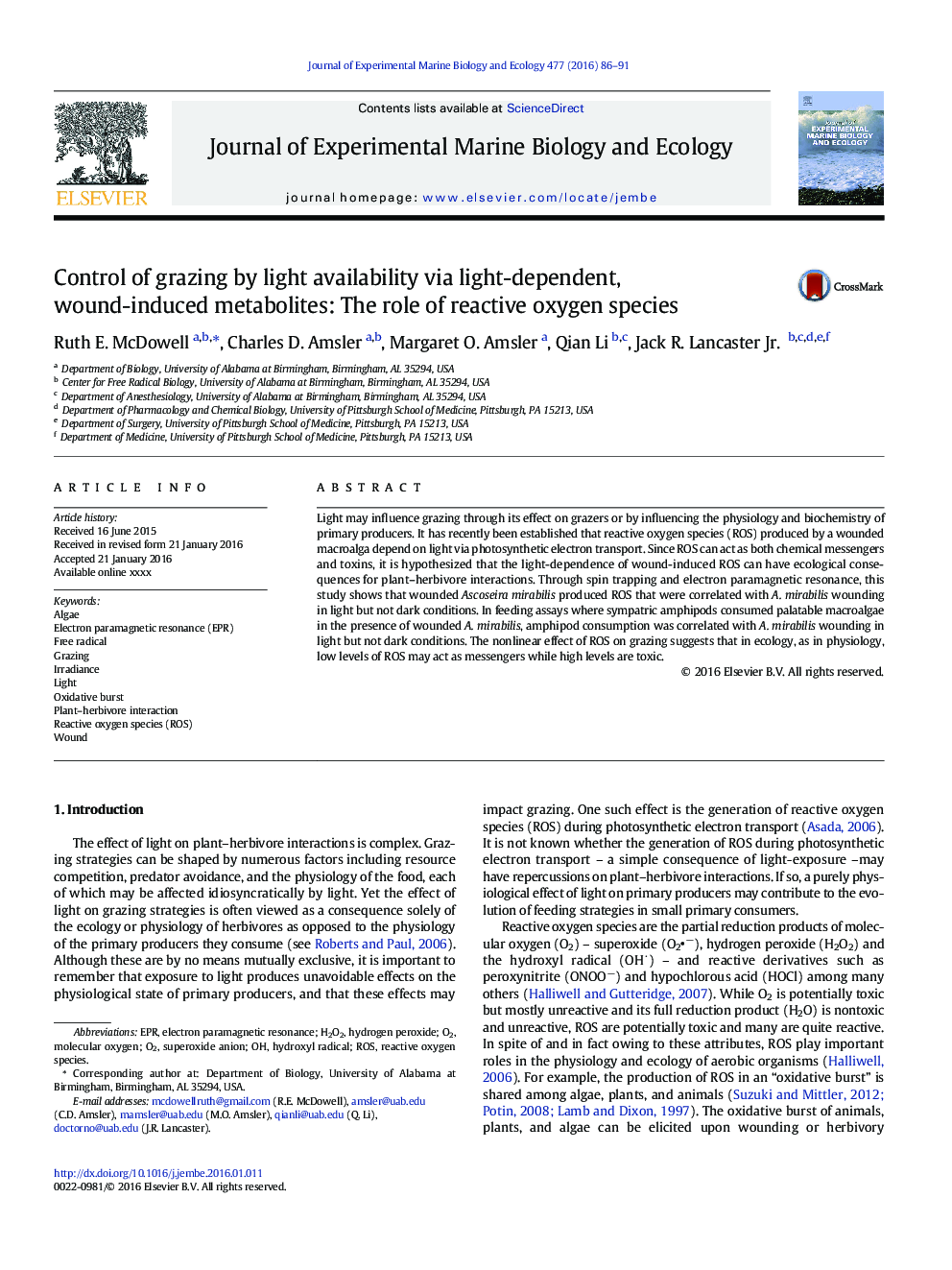| Article ID | Journal | Published Year | Pages | File Type |
|---|---|---|---|---|
| 6303760 | Journal of Experimental Marine Biology and Ecology | 2016 | 6 Pages |
Abstract
Light may influence grazing through its effect on grazers or by influencing the physiology and biochemistry of primary producers. It has recently been established that reactive oxygen species (ROS) produced by a wounded macroalga depend on light via photosynthetic electron transport. Since ROS can act as both chemical messengers and toxins, it is hypothesized that the light-dependence of wound-induced ROS can have ecological consequences for plant-herbivore interactions. Through spin trapping and electron paramagnetic resonance, this study shows that wounded Ascoseira mirabilis produced ROS that were correlated with A. mirabilis wounding in light but not dark conditions. In feeding assays where sympatric amphipods consumed palatable macroalgae in the presence of wounded A. mirabilis, amphipod consumption was correlated with A. mirabilis wounding in light but not dark conditions. The nonlinear effect of ROS on grazing suggests that in ecology, as in physiology, low levels of ROS may act as messengers while high levels are toxic.
Keywords
Related Topics
Life Sciences
Agricultural and Biological Sciences
Aquatic Science
Authors
Ruth E. McDowell, Charles D. Amsler, Margaret O. Amsler, Qian Li, Jack R. Jr.,
